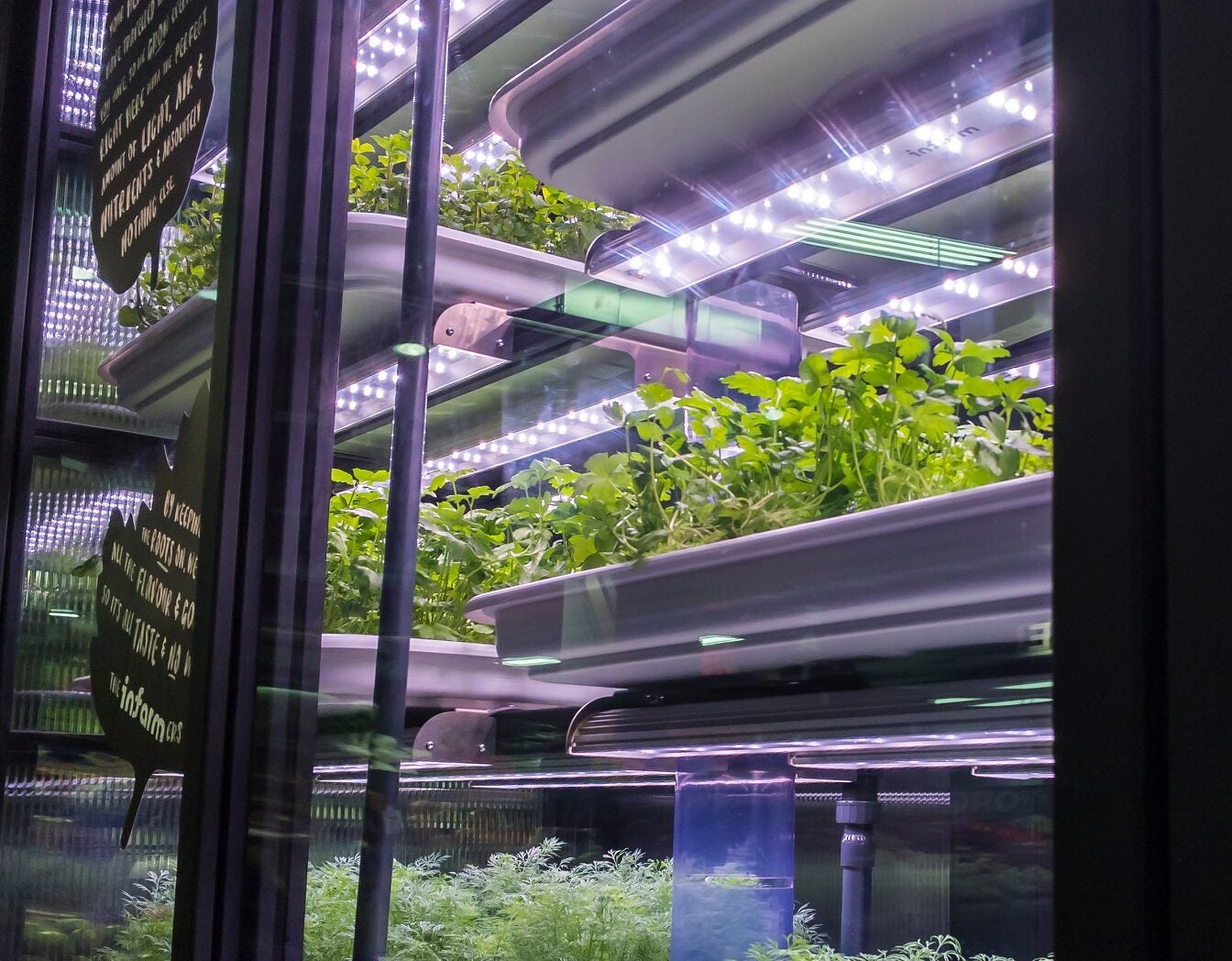
Infarm is effectively quitting Europe where the vertical-farming business was set up in Germany in 2013.
Erez Galonska, CEO and one of the three founders of Berlin-based Infarm, informed Just Food of the plans today (17 May) as this publication sought an update on the restructuring exercise announced last November.

Discover B2B Marketing That Performs
Combine business intelligence and editorial excellence to reach engaged professionals across 36 leading media platforms.
At that time, Infarm said it was downsizing operations in the UK, France and the Netherlands, while consolidating “farming operations” to what the company termed as its “core markets” in Frankfurt, Germany, Copenhagen in Denmark and Toronto, Canada.
In November, Infarm cited “challenging market conditions, particularly with regards to escalating energy prices and tough financial markets” for its consolidation in Europe, an announcement that was accompanied with plans to lay off around 500 workers.
“Infarm has decided to shift its geographical focus from Europe to high-potential regions better suited for indoor farming, with low energy prices and healthy market demand,” Galonska said in the statement provided to Just Food today.
“Our unique modular vertical farming technology thankfully makes this a fairly straightforward process. We will also continue to grow our business in North America, where we currently farm in our state-of-the-art growing facility in Toronto.”

US Tariffs are shifting - will you react or anticipate?
Don’t let policy changes catch you off guard. Stay proactive with real-time data and expert analysis.
By GlobalDataAn Infarm spokesperson said an update on the plans will be shared “when we have more information”, adding that the details provided in November still stand.
Operations in Japan were also under review at that time, while Infarm’s new US growing centre in Baltimore, Maryland, was still going ahead. Once complete, the business will have three operations in the US.
“We believe the short-term macroeconomic challenges facing indoor farming are overshadowed by the significant long-term environmental benefits it can deliver, coupled with its potential to enhance food security in such unstable times,” Galonska said today.
Speaking to Just Food in May 2022, the CEO emphasised the sectoral challenges and confirmed Infarm had yet to turn a profit, although he was confident the business was on a “very clear road to profitability”. Nevertheless, Infarm is not unique, as profitability in the sector is an industry-wide issue.
Since then, a couple of vertical-farming businesses have gone to the wall. Upward Farms in New York called it a day in April, ten years after the company was founded in 2013, the same year as Infarm.
Founders Jason Green, Ben Silverman and Matthew La Rosa wrote on the opening page of their website: “We found that vertical farming is almost infinitely complex – as we tackled challenges, new ones emerged.”
Future Crops, a joint Israeli-Dutch operation in the Netherlands, reportedly went bankrupt earlier this year, although Just Food was unable to verify the start-up’s demise at the time.
Agricool in France also threw in the towel last year, citing “insufficient turnover to finance the high structural costs”, along with the “lack of volumes necessary to achieve an operating balance”.
Controlled-environment agriculture, a designation in which vertical farming sits, is capital intensive, requiring external funds to finance the technology and running costs, including artificial lighting in some cases to supplement daylight.
It remains a relatively nascent industry requiring scale to compete with traditionally grown crops and is currently largely limited to fresh leafy greens, herbs and some vegetables such as tomatoes. However, fruits such as strawberries are starting to emerge.





